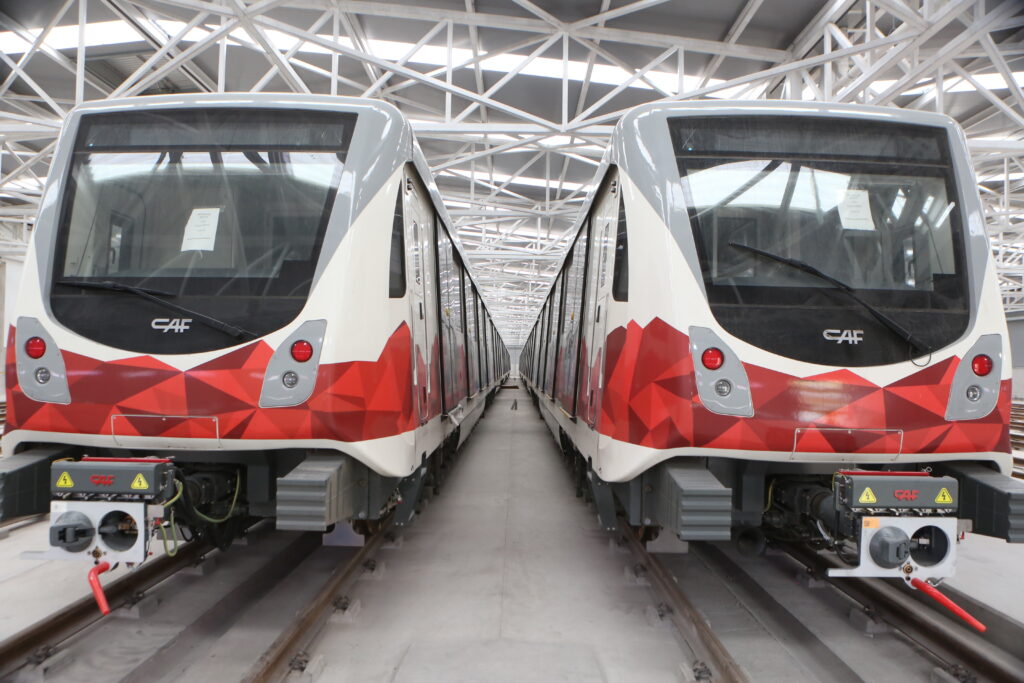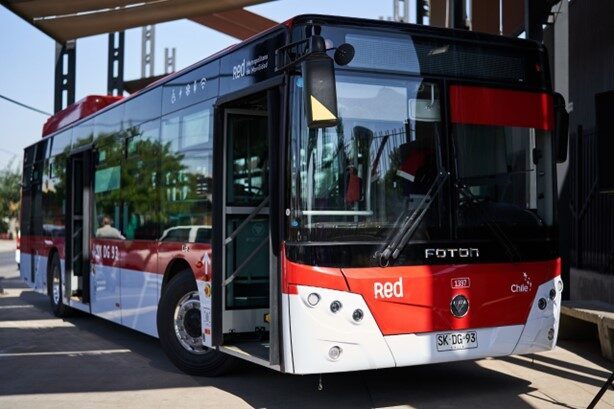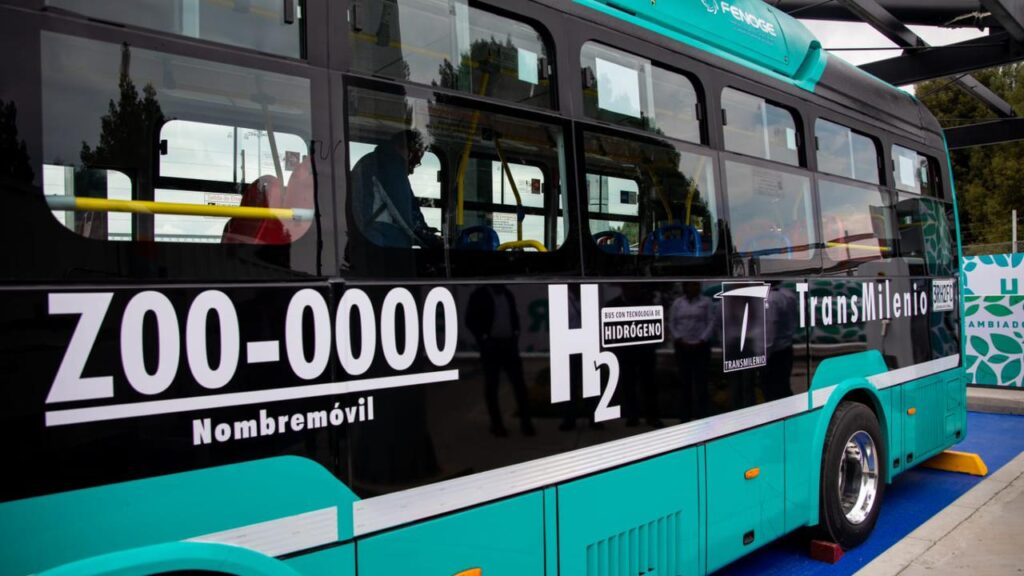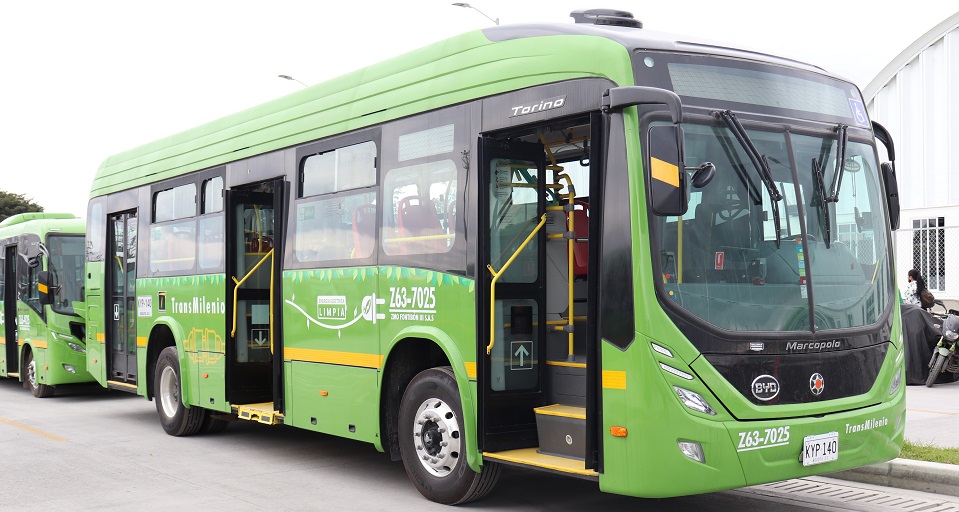- In the United States, the Regional Transportation Commission of Southern Nevada awarded the operation and maintenance of its bus network, including the city of Las Vegas, to First Transit, now owned by Transdev. Transdev has also won a major paratransit contract in Orlando (Florida).
- In Canada, Transdev announced three acquisitions in non-emergency medical transportation and school transportation, as well as four urban transportation contracts in Montreal.
- In Ecuador, Transdev is preparing, with its partner Metro de Medellín, the operational launch of the first metro line in the capital, Quito.
- In Chile, Transdev has put more than 900 buses into service in Santiago, including nearly 260 fully electric buses.
- In Colombia, Transdev will be testing the first hydrogen electric bus in Latin America.
Transdev’s pro forma revenues in the Americas amount to €2.8 billion.
From the North to the South of America, we are continuing our development. The wide variety of transportation modes that we deploy there allows us to meet the needs of each local community. It takes the expertise and power of an international group like Transdev to operate large-scale systems. As pioneers in the field of electric buses in the Netherlands, we have been able to transfer our know-how to Latin America. Transdev will continue to share its skills, since all over the world, local authorities are facing a dual challenge: shared mobility that must be accessible to all and that must embark on the energy transition.
Thierry Mallet, Chairman and CEO of Transdev
In North America
In the United States, the Regional Transportation Commission of Southern Nevada has awarded the operation and maintenance of its bus service to First Transit, now owned by Transdev [see ‘For the record’, below]. The new contract will take effect on July 1, 2023. To date, this represents more than 40 million trips per year in the southern part of the state, including the city of Las Vegas, with more than 400 vehicles and nearly 1,500 employees.
In Florida, Transdev has just won an operation and maintenance contract in Orlando from the ″Central Florida Regional Transportation Authority″ to provide paratransit services in the region, starting on June 1.
In Canada, Transdev made three acquisitions between February and May 2023. The first was Kunkel Bus Lines, a school bus company based in Ontario, whose 100 buses operate in the Hanover region. The second was Priority Patient Transfer Service, a non-emergency medical transportation company in the Ottawa area. Finally, on May 4, Transdev acquired Patient Transport Services, the largest non-emergency medical transportation company in the Winnipeg, Brandon and Carman regions. These transactions reinforce Transdev’s growth strategy in the country. All of these offerings are part of a set of multimodal services that are tailored to the specific needs of each community.

In Canada, Transdev has also won four urban transportation contracts with EXO, the Greater Montreal Area Public Transit Authority (excluding Montreal City). These contracts, which will start in mid-2024 and are worth €40 million a year, will run for 8 to 10 years. To operate them, Transdev Canada will invest in a fleet of 135 vehicles spread over three depots, for an overall investment of more than 35 million euros. Over time, EXO plans to invest in and progressively deploy electric buses in its urban transit systems.
In South America
In Ecuador, Transdev – with its partner Metro de Medellin – is preparing the operational launch of the first metro line of Quito. The first metro line in the country is also the highest in the world! Its 18 trains, driven by 50% women, will run at an altitude of 2,850 m in a 22 km tunnel. They will serve 15 stations – five of which are multimodal, allowing interconnection with Quito’s other public transportation systems – between Quitumbe in the south and El Labrador in the north, passing through the city center. Transdev and its partner Metro de Medellín will operate it for six years. Once operational, its massive transport capacity of up to 400,000 passengers per day, its route and the connections it provides will make this metro line the new mobility backbone of the city.

In Santiago, Chile, in February of this year, Transdev – with its local company RBU (Redbus Urbano) Santiago – put more than 900 buses into operation, including nearly 260 all-electric, even slightly ahead of the deadline set in the contract. At the same time, three of the seven RBU Santiago depots have been equipped with the necessary facilities to recharge the buses. This fleet of vehicles is now helping to improve traffic flow in the country’s capital.

In Colombia, Transdev will operate the first hydrogen bus in Latin America on an experimental basis. It will use certified green hydrogen of renewable origin. This eight-year zero-emission experiment will be carried out in Bogotá by Green Móvil, a Transdev subsidiary. With a single hydrogen refill in eight minutes, the bus will have a range of 450 km.

In Brazil, as part of the future line 6 of the São Paulo metro (the Orange line), which will start operating in 2025, Transdev do Brasil has signed – in 2021 – an eight-year technical assistance contract with the Concesionária Linha Universidade consortium, led by Acciona. This includes design, commercial studies and the first three years of operation. The Orange Line is currently the largest public-private partnership infrastructure project under development in Latin America.
Transdev’s pro forma revenues in the Americas are nearly €2.8 billion, with the consolidated figures after the acquisition of First Transit in March 2023:
Canada: €287 million / United States: €2,297 million / Colombia (in J.-V.): €50 million* / Chile: €110 million.
*Revenues under management.
For the record:
In the United States, Transdev completed the acquisition of First Transit on March 6, 2023. This transaction makes Transdev the leading operator of public transportation services in the United States and Canada. The Group will carry nearly 400 million passengers per year with a fleet of more than 20,000 vehicles (owned or operated). It also supports mobility authorities in their energy transition through the increasing deployment of zero-emission vehicles.
In Canada, Transdev will be the operator of the future Hurontario light-rail in the Greater Toronto Area, as a member of the Mobilinx consortium, and of the future automatic metro ‘Ontario Line’ as a member of the Connect 6ix consortium.
In Bogotá, Colombia, Transdev and its local partner Fanalca operate the largest fleet of electric buses in South America, consisting of 406 buses. To recharge, maintain and park them, Transdev and Fanalca have built the largest electric bus depot in the world (outside China), with a surface area of more than 40 000 m². The operation and maintenance contract was signed for a period of 15 years with TransMilenio S.A., the Colombian capital’s transit authority.
In Bogotá, again, Transdev and Fanalca operate several hundred “red” buses (articulated and bi-articulated) within the world’s largest Bus Rapid Transit system, that of TransMilenio, as well as the 163 cabins of the TransMiCable urban cable car system, in service since late 2018.

